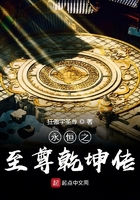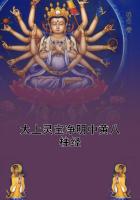[These three sentences are repeated from VII. SS. 12-14 --in order to emphasize their importance, the commentators seem to think. I prefer to regard them as interpolated here in order to form an antecedent to the following words. With regard to local guides, Sun Tzu might have added that there is always the risk of going wrong, either through their treachery or some misunderstanding such as Livy records (XXII. 13): Hannibal, we are told, ordered a guide to lead him into the neighborhood of Casinum, where there was an important pass to be occupied; but his Carthaginian accent, unsuited to the pronunciation of Latin names, caused the guide to understand Casilinum instead of Casinum, and turning from his proper route, he took the army in that direction, the mistake not being discovered until they had almost arrived.]
53. To be ignored of any one of the following four or five principles does not befit a warlike prince.
54. When a warlike prince attacks a powerful state, his generalship shows itself in preventing the concentration of the enemy's forces. He overawes his opponents, and their allies are prevented from joining against him.
[Mei Tao-ch`en constructs one of the chains of reasoning that are so much affected by the Chinese: "In attacking a powerful state, if you can divide her forces, you will have a superiority in strength; if you have a superiority in strength, you will overawe the enemy; if you overawe the enemy, the neighboring states will be frightened; and if the neighboring states are frightened, the enemy's allies will be prevented from joining her." The following gives a stronger meaning: "If the great state has once been defeated (before she has had time to summon her allies), then the lesser states will hold aloof and refrain from massing their forces." Ch`en Hao and Chang Yu take the sentence in quite another way. The former says: "Powerful though a prince may be, if he attacks a large state, he will be unable to raise enough troops, and must rely to some extent on external aid; if he dispenses with this, and with overweening confidence in his own strength, simply tries to intimidate the enemy, he will surely be defeated." Chang Yu puts his view thus:
"If we recklessly attack a large state, our own people will be discontented and hang back. But if (as will then be the case)our display of military force is inferior by half to that of the enemy, the other chieftains will take fright and refuse to join us."]
55. Hence he does not strive to ally himself with all and sundry, nor does he foster the power of other states. He carries out his own secret designs, keeping his antagonists in awe.
[The train of thought, as said by Li Ch`uan, appears to be this: Secure against a combination of his enemies, "he can afford to reject entangling alliances and simply pursue his own secret designs, his prestige enable him to dispense with external friendships."]
Thus he is able to capture their cities and overthrow their kingdoms.
[This paragraph, though written many years before the Ch`in State became a serious menace, is not a bad summary of the policy by which the famous Six Chancellors gradually paved the way for her final triumph under Shih Huang Ti. Chang Yu, following up his previous note, thinks that Sun Tzu is condemning this attitude of cold-blooded selfishness and haughty isolation.]
56. Bestow rewards without regard to rule,[Wu Tzu (ch. 3) less wisely says: "Let advance be richly rewarded and retreat be heavily punished."]
issue orders[Literally, "hang" or post up."]
without regard to previous arrangements;
["In order to prevent treachery," says Wang Hsi. The general meaning is made clear by Ts`ao Kung's quotation from the SSU-MA FA: "Give instructions only on sighting the enemy; give rewards when you see deserving deeds." Ts`ao Kung's paraphrase:
"The final instructions you give to your army should not correspond with those that have been previously posted up."Chang Yu simplifies this into "your arrangements should not be divulged beforehand." And Chia Lin says: "there should be no fixity in your rules and arrangements." Not only is there danger in letting your plans be known, but war often necessitates the entire reversal of them at the last moment.]
and you will be able to handle a whole army as though you had to do with but a single man.
[Cf. supra, ss. 34.]
57. Confront your soldiers with the deed itself; never let them know your design.
[Literally, "do not tell them words;" i.e. do not give your reasons for any order. Lord Mansfield once told a junior colleague to "give no reasons" for his decisions, and the maxim is even more applicable to a general than to a judge.]
When the outlook is bright, bring it before their eyes; but tell them nothing when the situation is gloomy.
58. Place your army in deadly peril, and it will survive;plunge it into desperate straits, and it will come off in safety.















